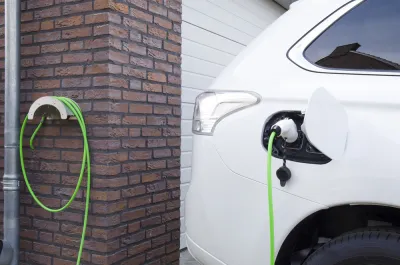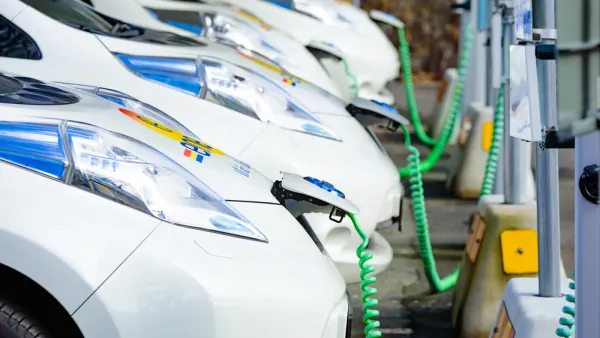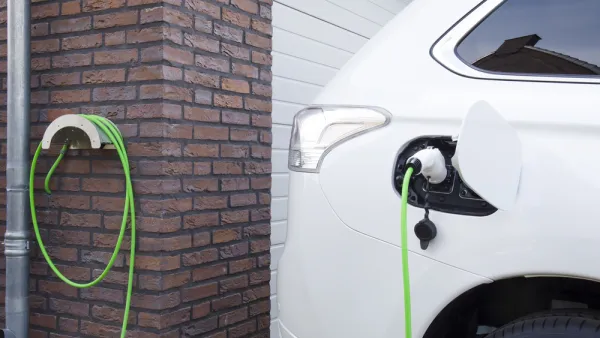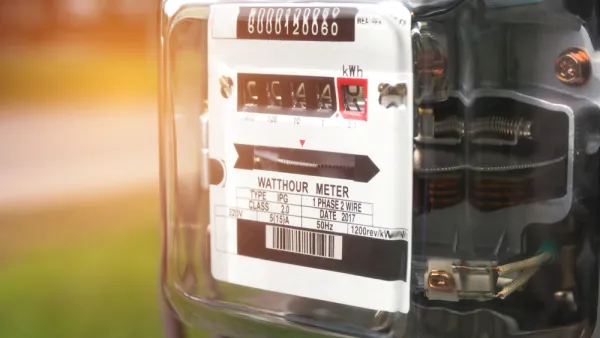What's the best way to ensure that electric vehicle drivers pay to maintain the roads they drive on, considering they don't pay fuel taxes? A new report from the UC Davis Institute of Transportation Studies was sent to the California legislature.

With the rejection of Proposition 6 in California last November, a new "Road Improvement Fee" for zero-emission motor vehicle model year 2020 and later will take effect July 1, 2020. The $100 annual registration fee, to be adjusted for inflation, will apply to any "motor vehicle that is able to operate on any fuel other than gasoline or diesel fuel," per the Road Repair and Accountability Act of 2017 (aka Senate Bill 1).
Revenues will be deposited into the Road Maintenance and Rehabilitation Account, thus ensuring that drivers who pay little or no fuel taxes will be paying to maintain the roads and bridges they drive on. But is that the best way to ensure electric vehicles pay "their fair share" of road maintenance?
Alan Jenn, a UC Davis research scientist with the Plug-In Hybrid & Electric Vehicle Research Center, doesn't think so, calling it neither effective nor sustainable in a new report requested by the California Legislature, writes Stephen Kulieke.
“The California zero-emissions vehicle registration fee doesn’t support the long-run funding of transportation infrastructure, nor is it equitable for drivers of electric and hydrogen vehicles,” said Jenn.
“California now has the opportunity to support alternative funding mechanisms,” Jenn said. “Our study finds that a per-mile road charge, designed specifically for zero-emission vehicles [ZEVs], is a relatively low-cost and sustainable solution to funding our roads.”
In March 2017, the California State Transportation Agency completed a 9-month pilot program of a road usage charge, similar to the Oregon program in operation since July 2015. However, Jenn is proposing that the California road charge apply only to ZEVs. Gasoline and diesel-powered vehicles would continue to pay 55.53 cents-per-gallon and 87.35 cents-per-gallon taxes, respectively, per API, now adjusted for inflation thanks to SB 1.
"Electric and hydrogen vehicles should be the only ones subject to the charge, Jenn said, since they come with advanced diagnostic software already built in, meaning a mileage-tracker can more easily log miles and send that information to whoever charges the tax," reports David Iaconangelo for E&E News (subscription).
The issue transcends the Golden State. According to the National Conference of State Legislatures, as of last summer, 19 states have enacted electric vehicle registration fees to ensure these vehicles pay for road upkeep, with many applying the fee to conventional hybrid vehicles as well.
Hat tip to Streetsblog California.
FULL STORY: How to Fund Roads and Ensure Electric Vehicles Pay Their Share

Analysis: Cybertruck Fatality Rate Far Exceeds That of Ford Pinto
The Tesla Cybertruck was recalled seven times last year.

National Parks Layoffs Will Cause Communities to Lose Billions
Thousands of essential park workers were laid off this week, just before the busy spring break season.

Retro-silient?: America’s First “Eco-burb,” The Woodlands Turns 50
A master-planned community north of Houston offers lessons on green infrastructure and resilient design, but falls short of its founder’s lofty affordability and walkability goals.

Test News Post 1
This is a summary

Analysis: Cybertruck Fatality Rate Far Exceeds That of Ford Pinto
The Tesla Cybertruck was recalled seven times last year.

Test News Headline 46
Test for the image on the front page.
Urban Design for Planners 1: Software Tools
This six-course series explores essential urban design concepts using open source software and equips planners with the tools they need to participate fully in the urban design process.
Planning for Universal Design
Learn the tools for implementing Universal Design in planning regulations.
EMC Planning Group, Inc.
Planetizen
Planetizen
Mpact (formerly Rail~Volution)
Great Falls Development Authority, Inc.
HUDs Office of Policy Development and Research
NYU Wagner Graduate School of Public Service




























